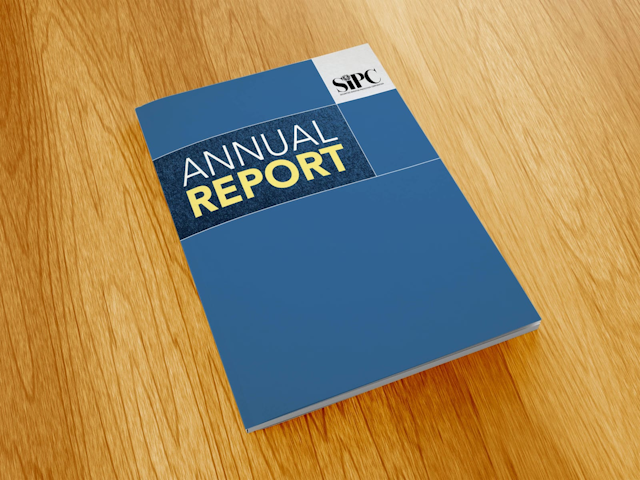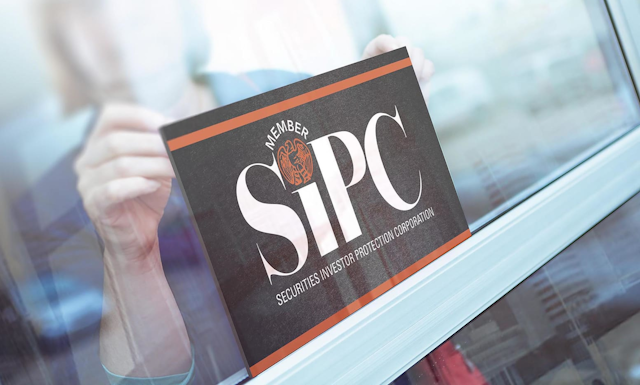WASHINGTON, D.C. – December 11, 2003 – Investors and brokers need to be on their guard against a new fraud scheme in which con artists are falsely posing on the Web as authentic brokerage firms that are members of the Securities Investor Protection Corporation (SIPC), which maintains a special reserve fund to protect the customers of insolvent brokerage firms. In the wake of receiving more than a dozen complaints from U.S. and overseas fraud victims hit by this new form of “brokerage identity theft,” SIPC today issued a public warning and also announced that it has forwarded files to the U.S. Securities and Exchange Commission (SEC) and the North American Securities Administrators Association, Inc. (NASAA) documenting instances of this new form of fraud.
Here’s how the scheme usually works: Con artists set up a Web site that uses the name of an actual SIPC member brokerage firm, but with a different address. In other cases, the party committing the fraud uses the name (and, in some cases, the address) of an actual registered broker, and then sets up a bogus entity using that person's name and address. The fictional internet entity claims to be a long established and respected brokerage firm, and a member of SIPC. The victim is often told to check the membership database on SIPC’s Web site, in order to “prove” that the firm is a SIPC member, when in fact the fictional firm has simply stolen the identity of a real SIPC member.
SIPC President Stephen Harbeck said: "SIPC has recently received information from more than a dozen U.S. and non-U.S. victims of this type of fraud. Experience tells us that most investors who lose money never follow up with a regulatory authority. So, we believe that the complaints we are seeing are just the tip of an iceberg. In addition to issuing this warning, we have sent our files to state and federal securities regulators in the hopes of identifying and shutting down these ‘brokerage ID theft’ rings."
NASAA President and Connecticut Securities Director Ralph A. Lambiase said: “Brokerage identity theft joins a long list of scams that rely on the Internet to stalk millions of potential victims at minimal cost. Identity theft is inherently difficult to detect. For that reason alone, investors should refuse any unsolicited online contact from anyone seeking personal information or money by simply hitting the delete key. I urge investors to contact their state securities regulator if they suspect they have been defrauded by this scheme.”
Harbeck noted that some of the schemes result in the “brokerage ID theft” ring simply offering a security for sale, taking in investor funds (often by wire transfer) and then vanishing. In more elaborate schemes, the con artists contact a shareholder of a thinly traded security. They tell the shareholder to refer to the SIPC Web site as “proof” of the good standing of his fictional brokerage firm. The con artist then offers to buy the thinly traded security at an attractive price. The phony broker may pretend to represent an unnamed party seeking to obtain a controlling interest in the thinly traded corporate shares. The shares have often declined to virtually no value in the open market, and consequently the shareholder is pleased to hear that a potential buyer exists. But the offer comes with a catch. The seller must make a substantial "good faith deposit" prior to the sale. When no sale by the unnamed party is made, the seller is often told a nonsensical story by e-mail, to the effect that the SEC has "declared a moratorium on all accounting-based trades," or that the SEC has "rejected the trade," or, in one case reported to SIPC, that the buyer has contracted cholera.
Another variation of this ID theft scheme involves telling the victim that their thinly traded, valueless shares can be used as a "deposit" or "down payment" for the purchase of a larger, well-known public company, but that there is an additional sum to be paid so as to complete the purchase of shares in the well known company. Because the "down payment" supposedly values the thinly traded securities at a premium, the deal appears attractive to the victim. Once the down payment is wired to the con artist, the victim never hears from the fictitious brokerage firm again.
To date, SIPC has seen evidence of victims in the United States, Canada, Norway, Sweden, Denmark, the Netherlands, South Africa, Singapore and Australia within the last few months.
SIPC TIPS FOR INVESTORS
SIPC TIPS FOR BROKERAGE FIRMS
































